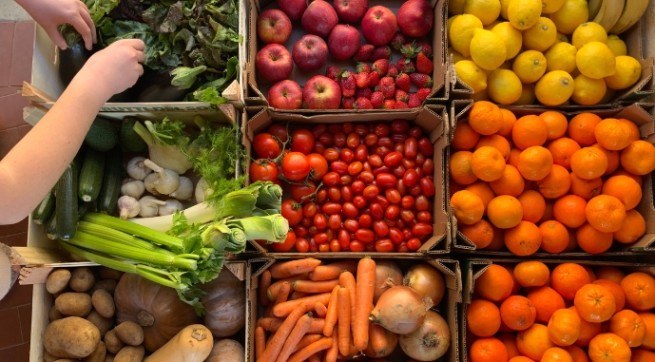Residents of Greece continue to experience increasing financial stress as, despite a slight decrease in inflation in January compared to December, food prices remain high.
Expected that ΕΛΣΤΑΤ will announce the national inflation index for January 15/02, although Eurostat data on the harmonized index have already given an idea of how our country “entered” the new year 2024.
The harmonized consumer price index ΕΝΔΤΚ (according to Eurostat) rose to 3.2% from 3.7% in December. This suggests that the dynamics are continuing, although some analysts believe that the decline will continue, despite the unstable situation of wars going on in the world.
Reduced consumption
The main problem remains the continuing rise in prices for basic products. Managers of this market predict a significant drop in consumption. According to ongoing research into FMCG retail trends by the Consumer Goods Retail Research Institute (IELKA), sales volumes are expected to decline (1.3%) in the first half of 2024 compared to the corresponding half of 2023. Also, in the first half of 2024, an increase in sales volume is expected (1.6%) compared to the corresponding half of 2023.

At the same time, as Alfa Bank points out in its weekly report on the Greek economy, Gross disposable income recorded a decline in 2020 due to the pandemic and measures imposed to limit economic activity.
The Harmonized Consumer Price Index is at (-5.1%). In 2021, disposable income recovered at a significantly higher rate than Εναρμονισμένος δείκτης τιμών καταναλωτή (7.6%). This is largely due to the fact that economic activity has gradually begun to normalize.
However, while disposable income recorded an equally strong rise of 7.6% in 2022, inflation was high at 9.3%, resulting in a decline in real household disposable income. For the nine months of 2023, losses in real terms were partially compensated, since the growth rate of nominal disposable income was significantly higher than the growth rate of ΕΝΔΤΚ (7.4%).
Persistent household pessimism also reflected in the consumer confidence indexcompiled by the Institute of Economic and Industrial Research (IOBE), which worsened in January 2024 to -46.3, the worst level since February 2023.
59% of households expect their financial situation to worsen over the next 12 months, 60% expect prices to rise, and 63% believe their financial situation is unlikely to be predicted, indicating a high degree of uncertainty.
According to INE/GSEE (January 2024), a wave of inflation is eating up all incomes and reducing the purchasing power of millions of low-wage workers and retirees. Simultaneously many households even face a crisis of survival as they cannot meet their needs (cover by basic monthly expenses).
Typically, 7 out of ten workers say they are unable to cope with their responsibilities, 55% have reduced overall grocery purchases, 75% have eliminated entertainment expenses, 15% have increased working hours or found a second job to make ends meet. And every third employee uses previously set aside money (from their savings) for food.
Analyzing the income crisis, which has caused an increase in prices over the past three years (2020–2023), there is an increase in prices for basic food products. In particular, the increase in prices for oils and fats reached 87.4%, for vegetables 35.2%, for dairy products and eggs 33.8%, for meat 31.2%, for bread and cereals 25.3%, for electricity, natural gas and fuel 39.1% and for rent 8.3%.







More Stories
Fruits and vegetables: imports up 50.2% in April
Greek products on their way to France
Reduced fees for POS transactions, limited bank fees